| |
|
|
|
|
|
|
|
|
|
|
| |
| |
 |
|
| |
田润德
编译
文/图 2020-03-13 18:36 |
|
| |
|
|
|
|
| |
 |
|
|
|
| |
约翰·布尔(John Bull 1562—1628) |
|
|
|
| |
|
|
|
|
| |
大不列颠及北爱尔兰联合王国(英国)国歌《天佑女王》
(God Save the Queen)
|
|
|
|
| |
《天佑女王》,也作《上帝保佑女王》(英语:God Save the Queen),男性君主在位时称为《天佑国王》(God Save the
King)是英国、英国的皇家属地、海外领土和英联邦王国及其领地作为国歌或皇家礼乐使用的颂歌。歌词和歌名随当朝君主的性别而有所改变:例如在男性国王在位时歌词中的“女王”改成“国王”,“她”改成“他”等。曲调作者不详,可能源自单声圣歌,但也有传统说法认为是1619年由约翰·布尔(John
Bull)所作。 |
|
|
|
| |
|
|
|
|
| |
音乐历史上的今天
1628年3月13日,《天佑吾皇》(God Save the King)的可能作者约翰·布尔(John
Bull)在安特卫普去世,享年75岁,他因为被控猥亵而逃离英格兰,坎特伯雷大主教曾抱怨道:“布尔热衷娶处女,跟他喜欢弹(fingering)管风琴(organs)和维吉纳琴(virginals)一样出名。”(这里的organs和virginals一语双关,既指乐器也指女性器官。——译注)
约翰·布尔(John Bull,1562年—1628年),英国管风琴演奏家、作曲家,因创作大量的维吉纳琴与管风琴乐曲而闻名于世。
约1562年生于老拉得诺,1628年卒于安特卫普。英国管风琴演奏家、作曲家。1573年在赫里福德教堂唱诗班,1574年起在女王伊丽莎白一世的皇室教堂音乐团中任男童唱诗班歌手;1582-85年在赫里福德大教堂、1586年在皇室教堂音乐团任管风琴师;牛津大学和剑桥大学音乐博士;1597年在伦敦任第一位格雷沙姆荣誉席音乐教授;1605年获詹姆斯一世津贴;1609年热心于管风琴制造;1613年因被控私通和淫乱罪逃离英国赴比利时;1615年任安特卫普大教堂(Antwerp
Cath.)与布鲁塞尔皇室教堂音乐团管风琴师直至去世。约翰·布尔是斯韦林克(Sweelinck)的好友 。
他的重要地位在于他是一位技艺精湛的维吉纳琴演奏家和有独创性的作曲家,可见于其作《沃辛汉姆》(Walsingham,一个主题的30个变奏)。他被列为键盘乐曲目的奠基人之一,作品收入1611年出版的《处女时代》(Parthenia)曲集中。他有一首作品叫做《神佑吾王》(God
Save the King),但与英国国歌并无相似之处。不过,布尔的另一首无题曲却可能是国歌旋律的来源。
《天佑女王》,也作《上帝保佑女王》(God Save the Queen),男性君主在位时称为《天佑国王》(God Save the
King)是英国、英国的皇家属地、海外领土和英联邦王国及其领地作为国歌或皇家礼乐使用的颂歌。歌词和歌名随当朝君主的性别而有所改变:例如在男性国王在位时歌词中的“女王”改成“国王”,“她”改成“他”等。曲调作者不详,可能源自单声圣歌,但也有传统说法认为是1619年由约翰·布尔(John
Bull)所作。也有说这首曲子是亨利·凯里或海顿所作。
今日视频:1、大不列颠及北爱尔兰联合王国(英国)国歌《天佑女王》;2、“当代帕格尼尼”罗曼.金演奏的《上帝保佑国王》;
3、罗曼-金一人炫技四重奏《莫扎特弦乐小夜曲》K.525。 |
|
|
|
| |
Today in the
history of music
On March 13, 1628, "God bless my emperor, God Save the King) may be the
author John Boolean (John Bull) in Antwerp, died at the age of 75,
because he was accused of sexually abusing and escape from England, the
archbishop of Canterbury had complained:" Boolean love to marry a
virgin, like to play with him (fingering) organ (organs), and d known as
kino piano (virginals)."(the organs and virginals are puns on the same
name.))
John Bull (1562-1628) was an English organist and composer, best known
for his numerous works on the virgina and organ.
He was born in old ladenot about 1562 and died in Antwerp in
1628.British organist and composer.In 1573, he was a boy's choirboy in
the hereford church choir, and from 1574 he was a boy's choirboy in the
royal church choir of queen Elizabeth I.He was organist in hereford
cathedral from 1582 to 85 and in the royal church orchestra from
1586.Doctor of music, university of Oxford and university of
Cambridge;In London in 1597, he became the first gresham professor
emeritus of music;James I's allowance in 1605;In 1609, he was
enthusiastic about making pipe organs;Fled England for Belgium in 1613
on charges of fornication and fornication;In 1615 he was the organist of
the orchestra of the cathedral of Antwerp Cath. And of the royal church
of Brussels until his death.John bull was a friend of Sweelinck's.
His importance lay in the fact that he was a skilled virginal player and
an original composer, as seen in his "Walsingham" (30 variations on a
theme).He is listed as one of the founders of the keyboard repertoire,
which was included in the collection of the 'Parthenia', published in
1611.One of his compositions, "God Save the King," bears no resemblance
to the British national anthem.Buhl's other untitled song, however, may
be the source of the anthem's melody.
"God Save the Queen," also known as "God Save the Queen," is called "God
Save the King" when a male monarch is on the throne.The lyrics and title
of the song changed with the gender of the reigning monarch: for
example, "queen" changed to "king" and "she" changed to "he" in the
lyrics of a male king's reign.The composer of the tune is unknown. It
may have come from a monophonic hymn, but there is also a tradition that
it was written by John Bull in 1619.Some say it was written by Henry
Carey or Haydn.
Today's video: 1. The national anthem of the United Kingdom of Great
Britain and Northern Ireland: god save the queen;2. "a contemporary
paganini" by Roman king, "god save the king";3. Roman king's one-man
virtuoso quartet serenade for Mozart strings k. 525. |
|
|
|
| |
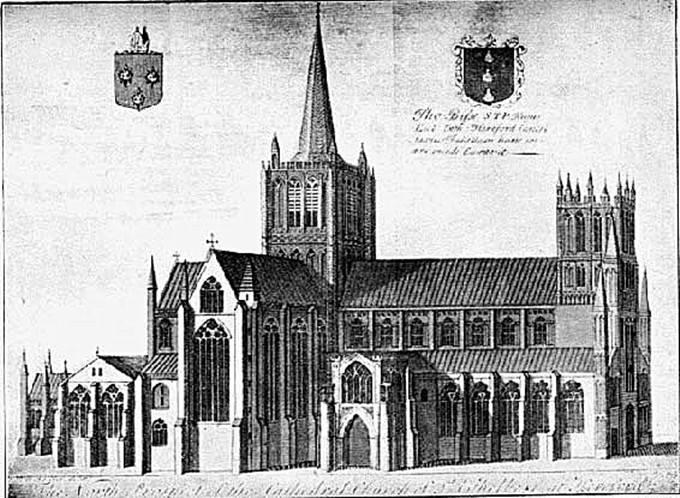 |
|
| |
1578年1月24日,苏塞克斯伯爵张伯伦勋爵任命约翰·布尔为商人泰勒公司的学徒。 伯爵的第二任妻子弗朗西丝推荐约翰·布尔担任赫里福德的风琴师。
从1582年12月24日起,他在那里得到报酬(最初是与他的主人Hodges一起)。 1583年1月21日,他还获得了合唱大师的报酬。 |
|
|
|
| |
Le 24 janvier
1578, le comte du Sussex, Lord Chamberlain, le place comme apprenti à la
Merchant Taylors Company. La seconde épouse du comte, Frances,
recommande John Bull pour le poste d'organiste à Hereford. Il y est
rémunéré à partir du 24 décembre 1582 (d'abord conjointement avec son
maître, Hodges). Le 21 janvier 1583, il y est également rémunéré comme
maître des chœurs. |
|
|
|
| |
|
|
|
|
| |
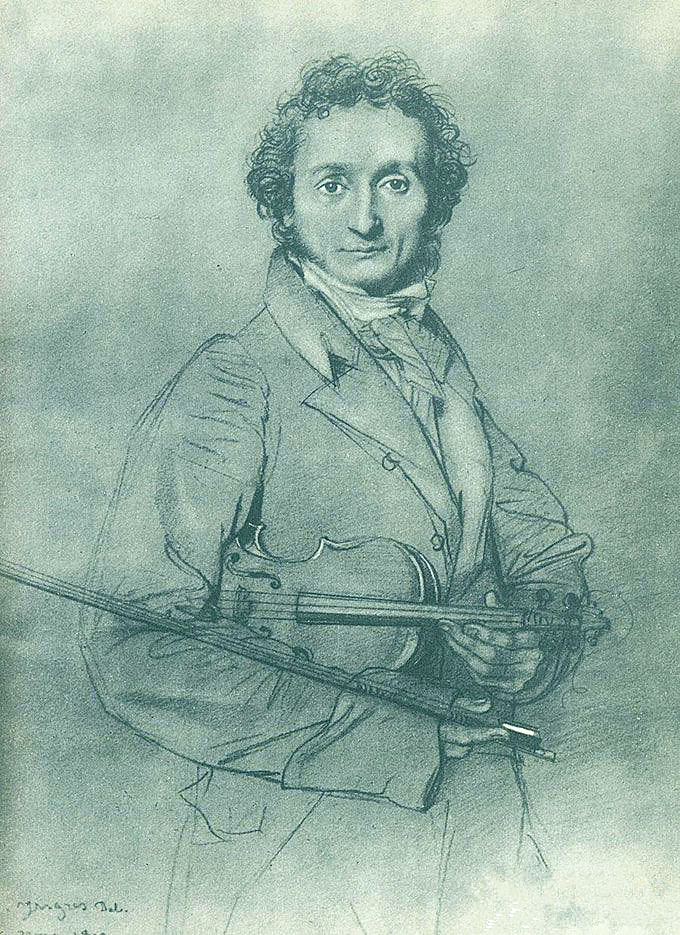 |
|
|
|
| |
帕格尼尼(Niccolo Paganini) |
|
|
|
| |
意大利小提琴大师、作曲家帕格尼尼(Niccolo
Paganini, 1782-1840)以《上帝保佑国王》的弦律写成小提琴炫技作品《「上帝保佑国王」主题变奏曲》(Variations on
"God Save the King",
Op.9),以此感谢参加他演奏会的普鲁士皇帝。作品共有8段变奏,华丽的炫技使此作品在演奏上有着非常大的难度。据说这首曲目被帕格尼尼本人修订过3次,其中的第2版被写有钢琴伴奏。由于此作品的技巧难度非比寻常,所以很少有人演奏此曲,近现代众多小提琴家中留下它的录音也是屈指可数,一些录音版本去掉了其中较难的第2段变奏。随着近现代小提琴演奏技巧的发展,一些演奏家在帕格尼尼原曲的基础上加入了自己新的演绎,有的演奏被记录、修订乐谱后被重新出版。一个标题被改为《上帝保佑女王》的版本,它的一些变奏段落的演奏技法被完全改变,更是加大了炫技的难度,使这个作品成为世界上难度最大的小提琴曲目之一。虽然,从帕格尼尼的修订到之后演奏家们若干的诠释,它的演变已经无法清楚地考证,不过帕格尼尼的这首作品所带给人们的震撼,却始终如一。 |
|
|
|
| |
Niccolo Paganini
(1782-1840), an Italian violin master and composer, wrote Variations on
"God Save the King" (op.9), a virtuoso violin composition based on the
strings of "God Save the King", to thank the Prussian emperor for
attending his concert.The work consists of 8 variations. The gorgeous
and dazzling techniques make it very difficult to perform.The track is
said to have been revised three times by paganini himself, with the
second edition written with piano accompaniment.Due to the unusual
technical difficulty of the work, few people played it, and only a few
recordings of it have been left among the numerous violinists in modern
times. Some recording versions have removed the more difficult variation
of the second paragraph.With the development of modern violin playing
skills, some performers have added their own new interpretation to the
original paganini music, and some performances have been recorded,
revised and republished.One title was changed to a version of "god save
the queen," and some of its variations were completely altered, making
it even harder to dazzle, making it one of the most difficult violin
pieces in the world.Although its evolution from paganini's revision to
the later interpretations of the performers is not clear, the impact of
paganini's work is consistent. |
|
|
|
| |
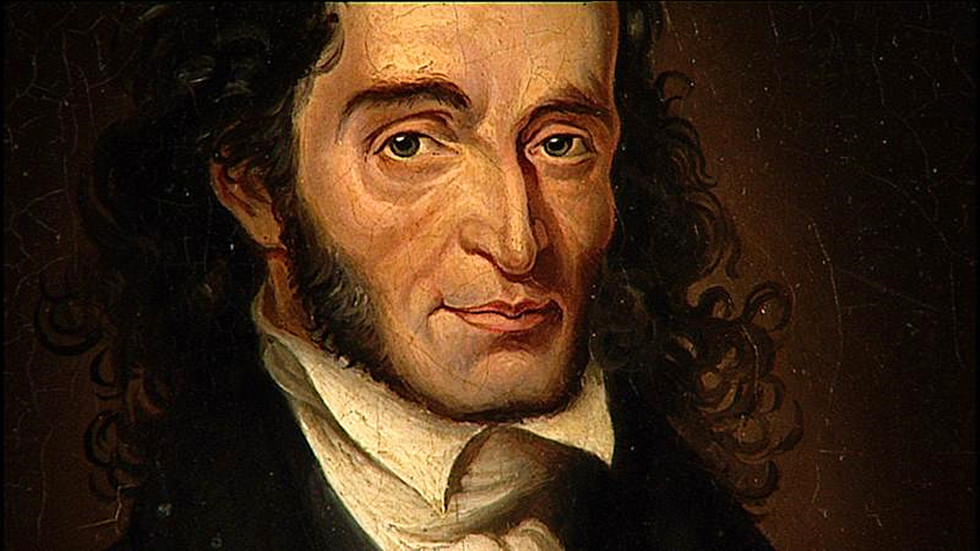 |
|
| |
尼科罗·帕格尼尼(Niccolò Paganini
) |
|
|
|
| |
尼科罗·帕格尼尼(Niccolò Paganini
,1782年10月27日—1840年5月27日),意大利小提琴/吉他演奏家、作曲家、早期浪漫乐派音乐家,是历史上最著名的小提琴大师之一,属于欧洲晚期古典乐派,对小提琴演奏技术进行了很多创新。 |
|
|
|
| |
Niccolo Paganini
(October 27, 1782 -- May 27, 1840) was an Italian violin/guitar player,
composer, and early romantic musician. |
|
|
|
| |
|
|
|
|
| |
“在我们能够比较清楚地看到帕格尼尼的艺术奥秘之前,必须去掉多年来由一些爱传播流言蜚语的人给我们灌输的错误概念。”这是杰弗里·普尔维所写的有关尼科洛·帕格尼尼的一段话。这位传奇式的人物,是位典型的古怪天才。他身材奇特,举止粗鲁,在处理财务方面很吝啬,但对女人却有着极大的吸引力,他还被人们误认为是位具有魔法的人。所有这些因素与他的那种无与伦比的演奏能力结合在一起,就注定了他在那个时代既是位著名人物,同时又恶名远扬的宿命。
一位二十世纪的医生提出了这样的看法,认为帕格尼尼患有一种结缔组织的失调病症,也就是直到1896年才诊断出来的所谓马凡(
Marfan)症候群。症状包括有高而瘦的身材、颀长的手臂、像蜘蛛一样的手指、能进行很大伸张的关节以及透明的皮肤。这种描述和我们现在所能读到的有关帕格尼尼外表的资料是一致的。
尼科洛·帕格尼尼1782年出生于热那亚,是个体弱而神经质的孩子。父亲是位出售船舶用具的杂货商。帕格尼尼五岁的时候,父亲教他演奏曼陀林和小提琴,也立即发现了这孩子的才能,并把这种才能最大限度地发展起来。十一岁时,他首次在公众面前进行了成功的表演,不仅演奏科雷利和塔尔蒂尼的作品,还演奏了了他自己的作品,曲名叫《卡马尼奥拉》,是以一个流行曲调为主题的变奏曲。
十三岁时,在他接受了当时在热那亚所能得到的最好的训练后,父亲带他到
帕尔马为小提琴家和作曲家亚历山德罗·罗拉演奏。他们到达时,人们告诉他们,这位大师生病不能接见他们。父子二人正在走廊等待的时候,帕格尼尼的父亲桌上看到了罗拉刚刚写出来的作品,就对儿子做了一个手势,于是帕格尼尼就视奏起这首曲子来。罗拉感到非常惊讶,就从病床上起来亲自看这孩子演奏。由于罗拉认为自己没有什么可以教给怕格尼尼,就建议帕格尼尼学习对位。在跟那不勒斯的加斯帕罗·吉雷蒂上了一些课之后,帕格尼尼的音乐教育就算完成了。格尼尼写道:“在他的指导下,作为练习,不用乐器,只用笔和纸,我写了四个声部的二十四首赋格。”
通过上述的例子,我们可以看出帕格尼尼没有把自己的成就归功于任何一位历史,而说自己是“自学”的,还说“他的灵感是直接从激励他内心的火焰中迸发出来的。”然而他似乎还受了另外一种影响。十九世纪比利时音乐学家费蒂斯说帕格尼尼告诉他,大约在1794年或1795年成就有过这样一段经历,“让他明白了演奏小提琴的所有秘密”。他听了维奥蒂的一个学生,波兰人奥古斯特·杜兰德的演奏,据说杜兰德有着非凡的才能,而且以辉煌的绝技而闻名。帕格尼尼向费蒂斯透露道:“他的许多最辉煌的、最受欢迎的技巧都是从这位演奏家那里学来的。”——选自玛格丽特·坎贝尔所著《不朽的小提琴家》 |
|
|
|
| |
"Before we can see
the artistic mystery of paganini more clearly, we must get rid of the
misconceptions that have been instilled in us over the years by some
gossips."This is a passage by Jeffrey purvey about niccolo paganini.This
legendary figure is a typical eccentric genius.He was strange in figure,
rough in manner, stingy with his finances, but he was extremely
attractive to women and was mistaken for a man of magic.All of these
factors, combined with his unparalleled ability to play, doomed him to
be both a famous and notorious figure in his time.
A 20th-century doctor suggested that paganini had a connective tissue
disorder called Marfan syndrome, which was not diagnosed until
1896.Symptoms include a tall, thin figure, long arms, spidery fingers,
joints that stretch widely and transparent skin.This description is
consistent with what we can now read about paganini's appearance.
Niccolo paganini was born in Genoa in 1782, a weak, neurotic child.My
father was a grocer of ship's equipment.When paganini was five years
old, his father taught him to play the mandolin and the violin.At the
age of eleven, he made his first successful public appearance, playing
not only corelli and tardini, but also his own piece, called camaniola,
a variation on a popular tune.
At the age of thirteen, after he had received the best training he could
get at Genoa, his father took him there
Parma played for the violinist and composer alessandro rola.When they
arrived, they were told that the master was ill and could not see
them.While the father and son were waiting in the hallway, paganini's
father, on his desk, saw what Laura had just written.Surprised, Laura
got up from her bed to watch the child play.Since Lola thought she had
nothing to teach him, she advised paganini to learn counterpoint.After
some lessons with gasparo giretti in Naples, paganini's music education
was complete."Under his direction," writes ghanini, "I wrote twenty-four
fugues in four parts, as an exercise, not with instruments, but with pen
and paper."
From the above examples, we can see that paganini did not attribute his
achievements to any one history, but said that he was "self-taught" and
that "his inspiration came directly from the fire that inspired him."Yet
he seems to have been influenced in another way.Fetis, the 19th-century
Belgian musicologist, said paganini told him about an experience in 1794
or 1795 that "taught him all the secrets of playing the violin."He
listened to one of viotti's students, the polish auguste durand, who was
said to be exceptionally talented and known for his brilliant
stunts.Paganini confided to fetis, "he learned many of his most
brilliant and popular techniques from this performer."-- from the
immortal violinist, by Margaret Campbell. |
|
|
|
| |
| |
|
|
|
|
| |
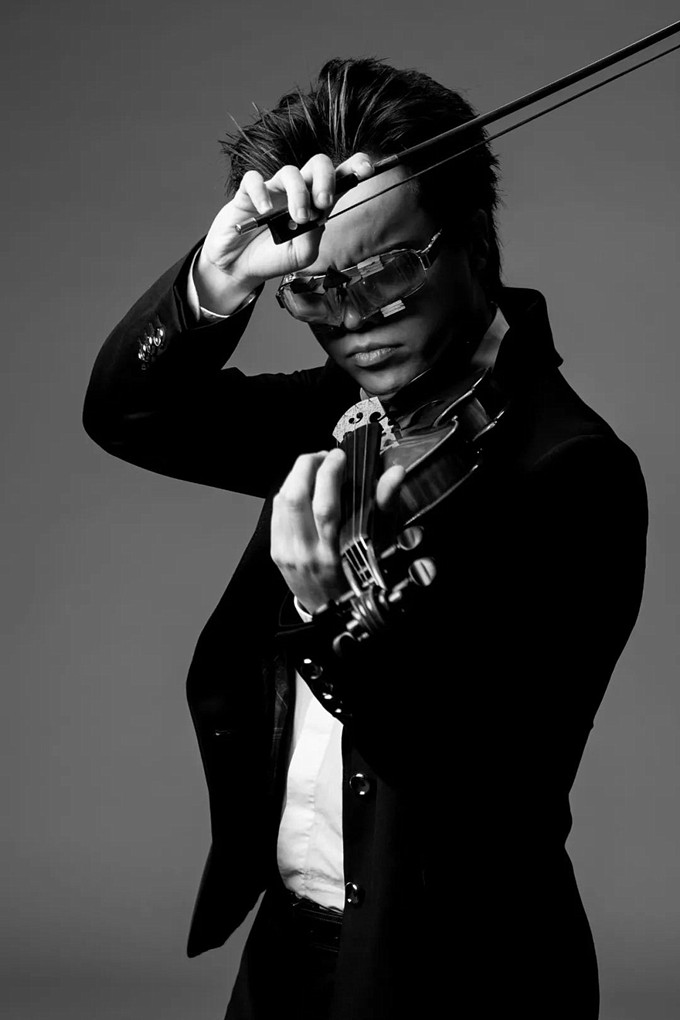 |
|
|
|
| |
罗曼·金(Roman Kim) |
|
|
|
| |
客居德国科隆的哈萨克斯坦俄罗斯籍小提琴家罗曼·金是当今备受争议的杰出小提琴演奏家。
在小提琴演奏圈外的音乐家同行听了罗曼·金的演奏,无一不是惊叹加赞赏。不过,罗曼·金从来不去在意少数小提琴家同行对他演奏上的不同评价。他说:“
认同我演奏的有认同的道理,不认同的有不认同的原因和理由。我知道我自己要什么,向往什么。这就足够了。”
现年97岁的世界著名小提琴大师伊夫利·吉特里斯(Ivry
Gitlis)听了罗曼·金的演奏后,赞叹道:“罗曼·金是我有生以来见过和听过的最杰出小提琴演奏家之一。要多少年才会出现这样一位小提琴家。”
吉特里斯2016年亲自颁授给罗曼·金一个他自己设立的大奖:“吉特里斯奖,并定制了一个水晶玻璃的小提琴模型作为奖品的一部分,亲自颁发给罗曼·金。
说罗曼·金的演奏出类拔萃,显示在他超凡和创新的演奏技术,以及创新的音乐诠释风格。说他备受争议,那是因为他与当今任何一位小提琴演奏家从演奏、声音审美取向和音乐审美取向都大相径庭,罗曼·金的创新不是否定传统的精髓,而是发扬和丰富传统精髓。罗曼·金的演奏追求的是专一和精益求精,而不是万金油演奏风格,什么都可以演奏,而演奏什么都一个万精油味。他专一于发扬光大帕格尼尼开创的现代小提琴演奏艺术和如歌如诉的音乐表现风格--让小提琴说话和歌唱。他精益求精于演奏技术的精准,这是一种职业态度和艺术要求。罗曼·金认为,演奏技术如果没有高标准要求的完整性精准(相对于片段精准),那就谈不上精湛。精湛的不是花拳绣腿和哗众取宠,而是朴素演奏中的精确。
罗曼·金的演奏技术,是硬碰硬地精准和精湛,那是明摆眼前和耳朵前的精湛,而不是传说中的精湛。 |
|
|
|
|
|
| |
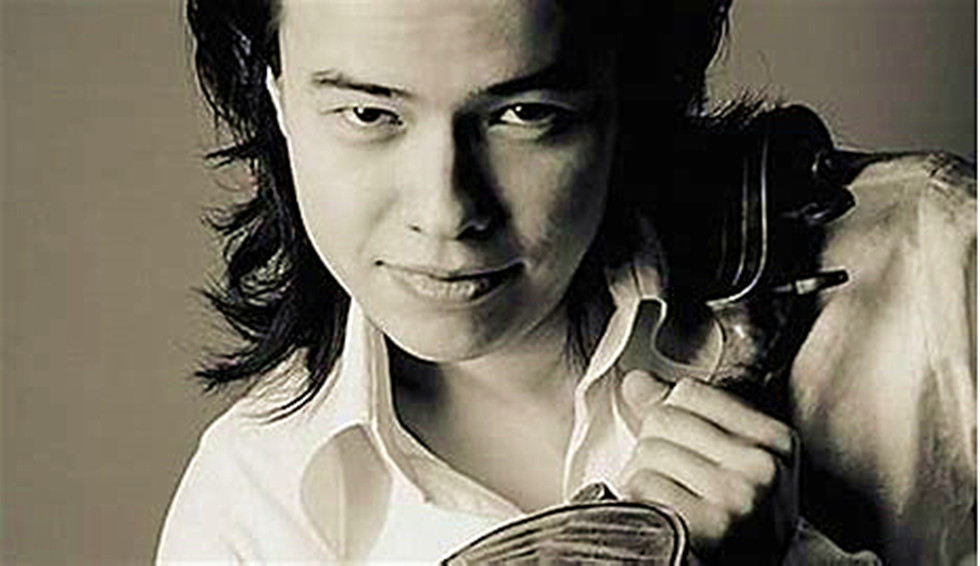 |
|
| |
罗曼·金(Roman Kim) |
|
|
|
| |
罗曼·金崇拜帕格尼尼,他认为帕格尼尼不是为了炫技而去开创新的小提琴演奏技术,而是音乐表现的驱动激发了帕格尼尼去寻找更丰富的演奏技术(音乐表现手段)。这,对于李斯特、对于肖邦等演奏家和作曲家都是如此。正是因为音乐表现的驱动,演奏家才开创出了能够表现音乐的新技术。为了炫耀演奏技术而发明的演奏技术,属于无聊和没有艺术价值的技术。罗曼·金所开创的新演奏技术,无一不是为了音乐的表现,包括他用牙齿啃弦拨奏,那也是为了获得一种非同寻常的拨弦音效质感。他根据巴赫的《D大调第三乐队组曲》第二乐章“咏叹调”改编的小提琴独奏“G大调咏叹调”,做到了在一把小提琴上演奏出原作的所有乐队声部。罗曼·金这首由他本人改编和演奏的视频已经在网上热传,德国世界著名的“骑熊乐谱出版公司”也出版了这首改编曲的谱子,非常畅销。但是,迄今为止,还没有看到有人正式公开演奏,因为要很好地演奏这首曲子,需要非凡的演奏技术。 |
|
|
|
| |
|
|
|
|
| |
罗曼.金演奏的《上帝保佑国王》N. Paganini - God save the King
|
|
|
|
| |
Roman Kim plays Variatons on theme ''God save the
King'' of Niccolo Paganini. In memory of Ruggiero Ricci.
我见过最具情感和技巧的演奏,真有才华。可惜这个剪辑和视频后期有点用力过度,不必要的镜头抖动和多余的混响效果。 |
|
|
|
| |
|
|
|
|
| |
罗曼-金 - 一人拉四重奏的奇才 |
|
|
|
| |
近年国际小提琴乐坛出现了一位炫技派的年轻小提琴手,他就是哈萨克斯坦共和国的罗曼·金。在个性上,他和国内的年轻小提琴家李传韵很相似:热情、忘我,以炫技见长。然而技高一筹的是,他居然能一个人拉下由弦乐四重奏乐队演奏的莫扎特的《G大调弦乐小夜曲》(W.A.Mozart
Eine kleine Nachtmusik)。请欣赏他的演奏。 |
|
|
|
| |
In recent years, the international violin world has
seen the emergence of a brilliant young violinist,
he is the republic of kazakhstan's Roman king.In
personality, he is similar to the young Chinese
violinist li chuanyun: enthusiastic, selfless, and
skilled.To his credit, however, he was able to pull
down by himself Mozart's w.a.m.ozart Eine kleine
Nachtmusik for strings in G major, played by the
string quartet.Please enjoy his performance. |
|
|
|
| |
|
|
|
|
| |
未得原作者编者授权严禁转载www.mt77.com任何内容 |
|
|
|
|
|
|
|
|
|
|
|
|
|
|


